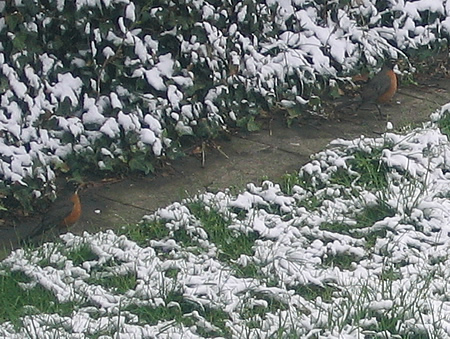It should become a new verb: to strel something. To achieve through sheer force of will and bullheaded determination. You know, to do it the Slovenian way. Just throw your body at it.* It may be an act of the purest idealism, but you must take pleasure in the horrendous work involved; not masochism—rather, a sort of spiritual pleasure in the physical stress of wrestling with gargantuan forces, all the while fully conscious and loving your “opponent,” which is not an opponent at all but a part of you.
Martin Strel, the man behind the verb, completed his swim down the length of the Amazon. He wasn’t in the best shape by the time he arrived at Belem, but not only had he achieved what he set out to do, he’s thinking of his next big swim.
Here’s an excerpt from the last installment of Martin’s weekly diary posted at BBC News:
I feel like a kid when dreams come true. I am very happy. I think I haven’t quite got into my head what I have achieved.
My swim is done, 5268km in 66 days, but today I am swimming to the city of Belem where there will be a big reception.
I think the Amazon took me, allowed me to be part of it, the river accepted me, protected me and allowed me to swim it, and now I am at the end and I am still alive.
Many times I talked to myself and to the river. I said: “I am a good man with a good intention. I’ve been talking with the Amazon river for 66 days now. The animals have been swimming with me for weeks, I think Nature allowed me to do this.”
People still ask me, why I did this.
I am a regular man, a regular common guy who just has higher goals than usual. I want to show everybody around the world that if you set a goal that is a little bit unusual or higher, you have to try to achieve it. If you keep working and don’t quit right away, you will come to the end. This could be whatever. I chose to swim the Amazon.
I also want to promote a message of clean rivers, clean water and friendship, because these rivers and water have to stay clean, otherwise the world will collapse. The Amazon river is still very clean, local people use it as a natural resource and I think the Amazon should stay clean forever.
I have seen some deforestation, but it is not going to be good if we keep expanding the limit. I want to pass this message to everybody: “Do not look only for business and for money when you come closer to nature.”
One of my missions is to protect the rainforest.
Physically, I have sores and pains in my whole body. I still have problems with my head, it feels like a bomb about to explode, I do not have a temperature but if feels like there is a big pressure—like fire in my head—I need to cool down a little bit.
Pain has been part of my daily progress for the last couple of weeks. But I do not complain about it—it has just been part of my life.
My arms and legs feel as if I am carrying a big iron bar, they feel very heavy. I have problems eating, to move a spoon or fork, or to drink, I have problems to dress.
I was also tired at the end of other swims, but here on the Amazon the pain has lasted much longer.
__________
*[Appended years later—Ed.] Now, before any Slovenian out there, their dander up and in high lather, fires off a comment and tells me to go to hell in a hand basket: “Slovenians are the most rational, even-keeled, clever, at times even wily, people on God’s green earth,” I will, of course, agree in advance. “And hard-working!” Granted. “But not stupid or obsessed, like this guy might be.” Yes and yes. But I think there’s a little crazy streak in a lot of us Slovenians. Like this guy. Still don’t agree? That’s okay.








